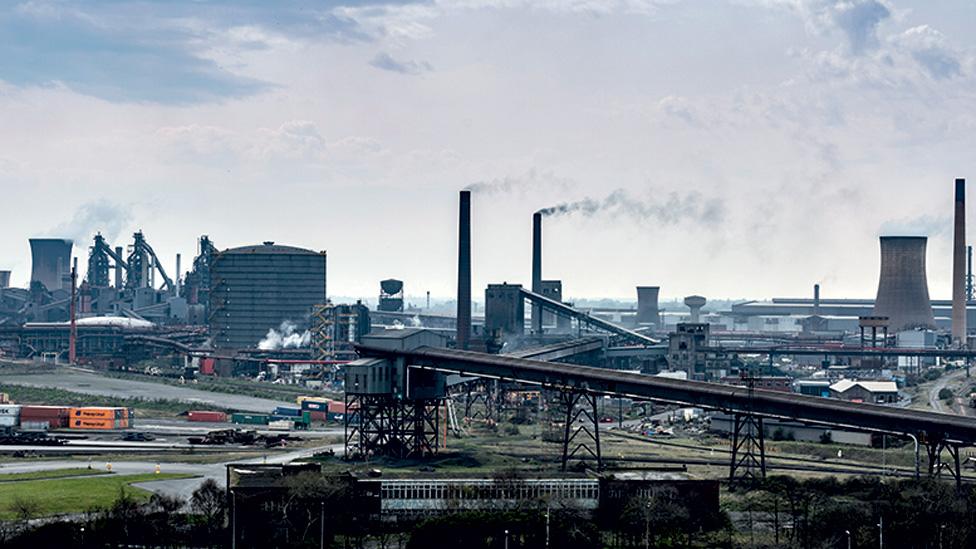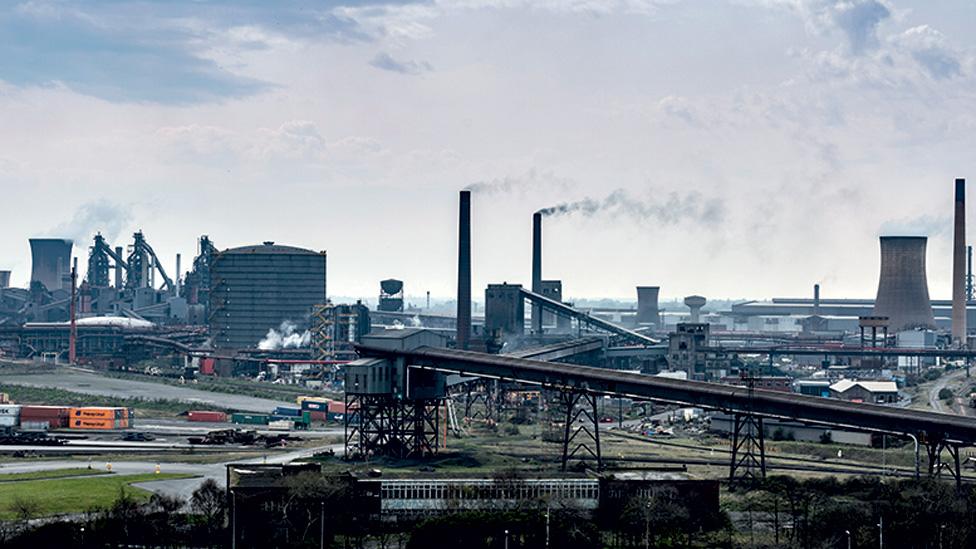British Steel in talks with government to avert collapse
- Published
- comments

Talks to avert the collapse of British Steel will resume later on Friday after the firm secured funds to stay afloat until the end of May.
Sources close to owners Greybull Capital say its future will be discussed at "ministerial level".
British Steel has admitted it needs further financial support from the government to help it address "Brexit-related issues".
One possibility is a £75m government lifeline to the company.
Otherwise, ministers can decide to nationalise the firm or see it fall into administration.
On Thursday, British Steel said it had the backing of shareholders and lenders and that operations continued as usual while it sought a "permanent solution" to its financial troubles.
A spokeswoman said: "As the business navigates the significant uncertainties caused by Brexit, and explores options to strengthen the business for the long term, we are pleased to confirm that we have the required liquidity while we work towards a permanent solution."
British Steel is the UK's second largest steel firm, employing 4,500 people and about 20,000 indirectly via its supply chain.
In April, the firm was forced to borrow £100m from the government to pay an EU carbon bill, so it could avoid a steep fine.
However, concerns about its future were raised this week after Sky News reported that insolvency experts had been lined up in case the firm could not secure further government funding.
It is understood that along with administration, nationalisation or a management buyout are being discussed as fall-back options for the company.
Weak pound
British Steel's troubles have been linked to a slump in orders from European customers due to uncertainty over the Brexit process.
The firm has also been struggling with the weakness of the pound since the EU referendum in June 2016 and the escalating trade US-China trade war.
Greybull Capital, a private equity firm, rescued Tata Steel's long products business during the depths of the steel crisis in 2016, saving more than 4,000 jobs.
It has since rebranded the company as British Steel and recently returned it to profit.
The concerns come days after Tata signalled its planned merger with German rival Thyssenkrupp was off, raising fresh doubts about its Port Talbot site.
Tata, which admitted it is facing tough operating conditions in the UK, promised to keep its UK plants running, but only if they could be profitable.
- Published14 May 2019

- Published13 April 2019
